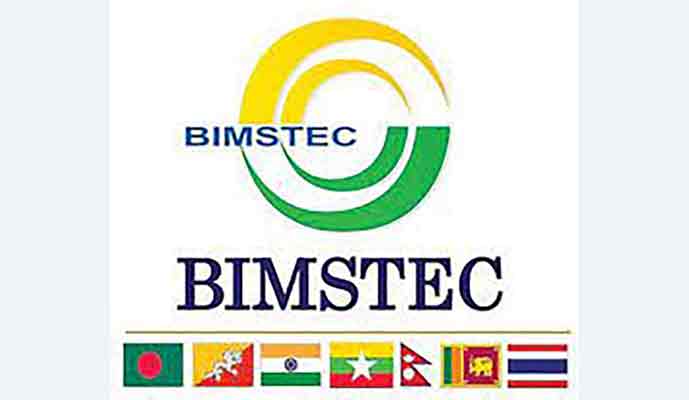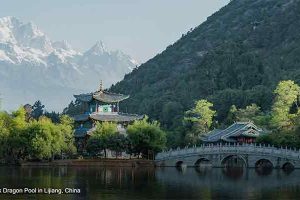
Imtiaz Ahmed
Despite several limitations, the Bay of Bengal Initiative for Multi-Sectoral Technical and Economic Cooperation (BIMSTEC), an international organisation of seven South Asian and Southeast Asian nations, will attain desired social, economic and cultural goals in the coming years.
Ambassador Indra Mani Pandey, the new Secretary General (SG) of the Bay of Bengal Initiative for Multi-Sectoral Technical and Economic Cooperation (BIMSTEC) and a senior diplomat of India, has expressed this view while talking to the press this week
The new SG has reiterated his commitment to work earnestly and with a new vigour to translate into reality the grand vision of BIMSTEC member states.
He also has pledged to work on expanding and deepening the growing cooperation amongst the BIMSTEC member States, within the framework of seven pillars of collaboration agreed by BIMSTEC leaders.
The Bay of Bengal Initiative for Multi-Sectoral Technical and Economic Cooperation (BIMSTEC) is an international organisation of seven South Asian and Southeast Asian nations (India, Bangladesh, Nepal, Bhutan, Sri Lanka, Myanmar and Thailand), housing 1.73 billion people and having a combined gross domestic product of US$5.2 trillion, according to available data of 2023.
Indra Mani Pandey said that that member countries adopted the BIMSTEC charter and signed several legal agreements during the Colombo summit held March 28-30, 2022.
The BIMSTEC charter has laid the foundations for a prosperous, peaceful, and sustainable Bay of Bengal region, a goal that can be achieved by greater integration and deeper collaboration. While ensuring continuity with past efforts and strengthening economic cooperation is necessary, it must also realise its potential in newer areas such as the blue economy, which has three interlinked pillars— connectivity, prosperity, and regional stability…….
To a question of comparing success with regional groups like ASEAN and EU, Indra Mani Pandey said that ASEAN and EU had their births in 1950 and 1967 while BIMSTEC was only born was in 1997.
He said that political leaders and policy-makers of India, Bangladesh, Nepal, Bhutan, Sri Lanka, Myanmar and Thailand are working on a master plan on the grid connectivity in the group, that, in turn, to would help transmit the power among the member countries…….
Indra Mani Pandey also said that the sixth Bay of Bengal Initiative for Multi-Sectoral Technical and Economic Cooperation (BIMSTEC) Summit will held in Bangkok this year with Thailand chairing the summit.
Meanwhile, Sri Lanka hosted the 5th Bay of Bengal Initiative for Multi-Sectoral Technical and Economic Cooperation (BIMSTEC) Summit in Colombo during March 28-30, 2022.
The President of Sri Lanka chaired the 5th BIMSTEC Summit on 30 March, 2022 with the virtual participation of leaders of Bangladesh, Bhutan, India, Nepal and Thailand. Myanmar, represented by the Foreign Minister of Myanmar at the Summit.
During the Summit and preceding meetings, the delegates discussed the progress of the BIMSTEC as a regional group.
The idea of creating a multilateral cooperation forum and the need to connect South and South East Asia started in the late 1990s. In June 1997, Bangladesh, India, Sri Lanka and Thailand took the first step to establish what was known as BIST-EC through the adoption of the Bangkok Declaration. Later in the same year Myanmar joined the group.
In 2004, Nepal and Bhutan joined the bloc during which the first BIMSTEC Summit took place and it was only during this Summit that BIMSTEC was formally endorsed as the Bay of Bengal Initiative for Multi Sectoral Technical Cooperation.
Although a BIMSTEC framework was established and a declaration signed in 1997, there however, did not exist a formal working structure.
Meanwhile, Ambassador Indra Mani Pandey, a senior diplomat of India, January 6, 2024 assumed the position of Secretary General (SG) of the Bay of Bengal Initiative for Multi-Sectoral Technical and Economic Cooperation (BIMSTEC).
Pandey, succeeded Tenzin Lekphell of Bhutan, is the 4th SG of BIMSTEC and will remain its SG for a period of three years, a foreign ministry press release said.
Pandey thanked the BIMSTEC member States for entrusting him with the responsibility of SG and sought their continued support and guidance to the Secretariat, enabling it to meet their expectations.
A career diplomat, ambassador Pandey joined the Indian Foreign Service in 1990. Prior to taking over as SG, Amb Pandey served as the Permanent Representative of India to the United Nations and other International Organizations in Geneva.
Earlier, Ambassador Pandey had served as Ambassador of India to the Sultanate of Oman. Before Muscat, he had served as Deputy Ambassador of India to France and Consul General of India at Guangzhou in China.
Ambassador Pandey has also served in various capacities at Indian Missions in Cairo (Egypt), Damascus (Syria), Islamabad (Pakistan), Kabul (Afghanistan) and Permanent Mission of India to Conference on Disarmament in Geneva (Switzerland).
During his earlier stints at Ministry of External Affairs, Government of India, in New Delhi, Ambassador Pandey had handled assignments in West Asia North Africa Division; Consular, Passport and Visa Division; Counter Terrorism Cell; Americas Division; Bangladesh, Sri Lanka, Maldives and Myanmar (BSM) Division.
During 1998-99, Ambassador Pandey attended Foreign Service Programme at Oxford University. In 2009, he attended 49th Course on National Security and Strategy, conducted by National Defence College of India.
Ambassador Indra Mani Pandey is a career diplomat. He joined Indian Foreign Service in 1990.






